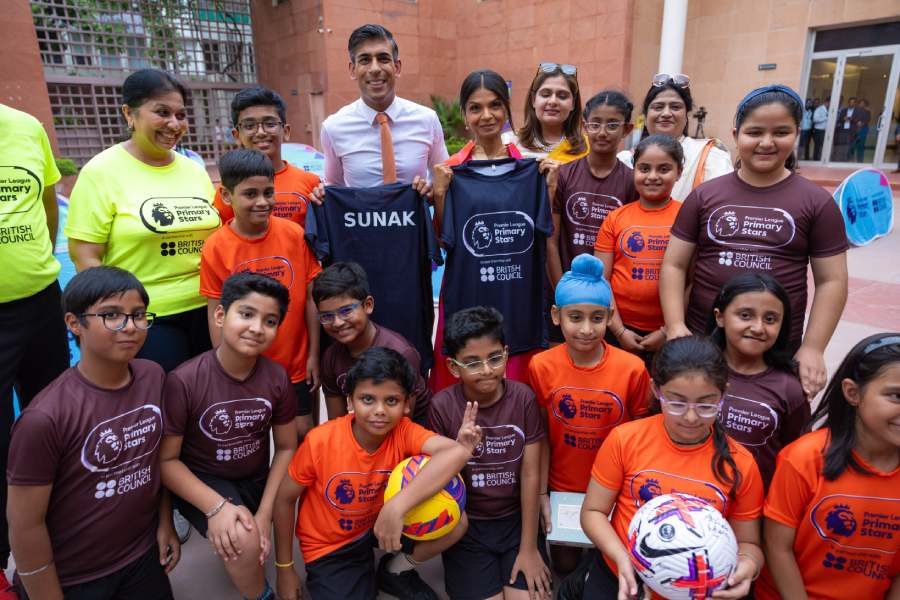An online summit organised by several Indian editors and former Supreme Court judge Madan B. Lokur brought forth several unique perspectives on common challenges faced by journalists in G20 countries.
A recurring theme at the M20 Media Freedom Summit was the plague of fake news, digital disruption, including trolling of journalists, and traditional forms of harassment like violence or motivated litigation.
Rochelle de Kock, the editor of South Africa’s The Herald and Weekend Post, said in her speech: “You see how some politicians and even cabinet ministers start smear campaigns targeting specific journalists on social media and then you have their supporters coming for them by harassing them, intimidating, and even threatening them. Some politicians place a ‘ban’ on some reporters covering their rallies or press conferences because their reporting is critical of them. This is especially a problem among Opposition political parties. We are seeing more of this and not enough pushback from others outside of the media landscape. Their supporters often target these reporters on social media, and it is a lot to have to endure.
“Female journalists are more prone to these attacks.”
Chris Warren, a columnist for Australia’s Crikey! and a former president of the International Federation of Journalists, said: “…In 2017, Australia’s First Nations issued the Uluru Statement from the Heart, calling for a constitutionally mandated Indigenous Voice to the national parliament. Last year, the newly elected Labor government agreed to submit the question to a national referendum, with the vote scheduled to be held on October 14 this year.
“Australia’s populist Right has taken this proposal just about as well as you might expect. Australia’s journalism is struggling to deal with the embrace of misinformation and downright disinformation by conservative politics and media through the craft’s traditional truth-based tools.
“Indigenous journalists — like First Nations elders and leaders — have been abused and attacked, including by political leaders and senior journalists who should know better in some of the most appalling and racist terms.”
Maurizio Molinari, the editor-in-chief of Italy’s La Repubblica, said: “Not only our ideas, values and hard-working news-making business, but I’d say first and mostly our way of working — the way that we look for news or that we express opinions, that is the base of journalism in the free world — is threatened by fake news in the social networks…. In this case, we see almost on a daily basis that you have independent media organisations and they are attacked by people that have malign intentions, they want to harm us.
“But they want to do it in a way that our profession will be destroyed, and will be erased. They want to transform the idea of information and communication from what it is today — what we have been known and been doing as journalism — into basically a hardball debate that you can see or you can watch in every coffee shop.”
Wahyu Dhyatmika, CEO of Indonesia’s PT Info Media Digital (Tempo Digital) and chairman of the Indonesian Cyber Media Association, said: “This is a new kind of censorship in the digital age. By increasing the cost of news production via flooding bad traffic to independent websites and forcing them to pay for higher server cost, and by silencing critical news media with advertising that is tied to the obligation to not criticise their clients, independent publishers are forced to do self-censorship.
“This is very dangerous to our own existence. Because if we choose to follow these new rules of the game, we will lose the trust of our own audience and we will lose our relevance to the public.”
Dhyatmika appreciated attempts by his country’s government to bring in regulations for revenue transfer from online platforms to publishers that would also aid small publications in defending themselves from such cyber attacks.
James Lamont, board member and former managing editor of Britain’s Financial Times, said: “I’d like to draw to your attention the work of the Trusted News Initiative. This is an international initiative started by the BBC. Publishers like the FT, The Hindu, Reuters and The Washington Post and others join forces to combat fake news in dialogue with some of the big tech platforms, like Google, Microsoft and Facebook.
“One of its activities is an alert system across newsrooms and their social media teams to alert news editors to a trending piece of fake news, and to persuade the big digital platforms to deprioritise them. Another is to share verified data sets like election results when they are announced and where they are available. The point I want to make is that coalitions can work.”
Edwy Plenel, the editor of France’s Mediapart that reported the alleged irregularities in the Rafale fighter aircraft deal, said: “The digital revolution brings with it a new hope for democracy, for sharing knowledge, for borderless communication and for citizen participation. This was illustrated by the pioneering work of Wikileaks, which is why its founder Julian Assange is paying a high price. We are living in the era of the counter-offensive, with States, including those with elective democracies, repressing independent journalism, while economic powers, notably digital platforms, are ruining the quality of public debate.
“So, as journalists, we must be at the forefront of a vital battle for the democratic ideal as the public’s right to know everything that concerns them, everything that is in the public interest.”











